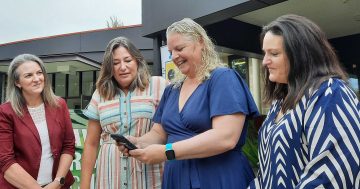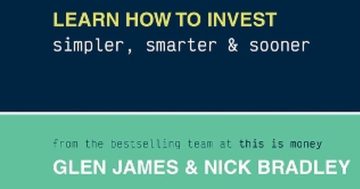Mark Story* says the reuse of goods and services through cashless bartering is good for the planet and for the household budget.
 Simply asking “What’s your best price?” next time you’re buying a higher priced item (like bedding, electronics or furniture) often results in a few more bucks off.
Simply asking “What’s your best price?” next time you’re buying a higher priced item (like bedding, electronics or furniture) often results in a few more bucks off.
That’s because “cash is king”, and no retailer wants you “voting with your feet” by exiting without buying.
While this type of haggling is as old as time, modern forms of bartering — which is all about exchanging goods or services without money changing hands — are also becoming equally popular.
The reuse of stuff through cashless bartering is also good for the planet, without you having to stretch your household budget.
Whether you realised it or not, when you played swapsies in the playground (marbles for lollies), you were actually bartering.
There’s nothing to stop you doing similar things by setting up your own “contra” system or joining an online bartering platform where you can exchange something you have for something you need.
Bartering options to consider
Unless you’ve been living in a cave, you’ll already know that sites like Gumtree allow you to swap and exchange stuff online.
However, there are many other options also operating in Australia.
Take a look at free advertising website Free Ads Australia’s grander version of swapping spuds for eggs.
Examples of bartering here include everything from a nurse/midwife offering services in exchange for building services, through to someone swapping a VT Commodore for a small tinnie fishing boat.
Operating on a similar basis is u-Exchange, where members can barter online for items, services, holidays or home exchanges.
For example, a member in WA was recently offering website design in return for spray painting, while another member in Adelong, NSW, offered the use of several hectares of land in return for fencing.
For something slightly different, there’s what’s called Local Energy Trading Systems (LETS), which allows community networks to exchange goods and services.
You can join one of 50-plus exchange groups operating in Australia or register to establish a community exchange group in your area.
LETS trading schemes explained
Under LETS, goods and services are traded online via an Offerings List.
But instead of using hard currency, they swap stuff using their own alternative money system.
For example, an oil change might be traded for credits on something deemed to have a similar value.
Appy and free
Then there’s the bartering platform Bunz that’s also downloadable as an app.
Launched as a social platform, Bunz is a money-free trading community that lets users trade stuff, for example, my cross-trainer for your carpet.
Bunz also has an in-app rewards program that pays BTZ (digital currency) in return for viewing ads and sharing data.
BTZ can be used for trading and bartering goods and services with other Bunz users on the app.
Other apps to familiarise yourself with include Freecycle, a non-profit movement of people who give (and receive) stuff for free in their own neighbourhoods.
Also check out homeexchange.com, trustedhousesitters.com and Couchsurfing — all offering ways to travel without paying a cent.
While bartering is perfectly legal, Andrew Howe, of legal firm Greenwoods, reminds anyone who’s GST-registered they have compliance obligations.
While two GST-registered entities may be GST-neutral when bartering, these exchanges need to be disclosed to the Australian Taxation Office (ATO).
However, between consumers, Mr Howe says bartering remains too novel and well beyond the eye of either financial intelligence agency Austrac or the ATO to monitor or police.
Tips to bartering via an online exchange
- Read the terms and conditions governing online bartering entities carefully.
- Don’t barter what isn’t yours or anything you might regret.
- Only trade something of comparable value.
- Don’t barter for anything you don’t want.
- Don’t blame another party for a bad trade.
- Know the condition of the goods you’re receiving.
- Know where the other party lives, and any delivery costs.
- If you’re bartering services, outline where they start and finish.
* Mark Story is a financial journalist and business copywriter.
This article first appeared at thenewdaily.com.au.











